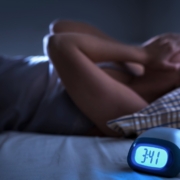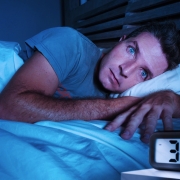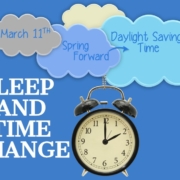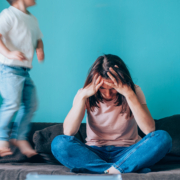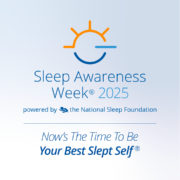Understanding Sleep Terrors in Children: Causes, Symptoms, and How to Help
Understanding Sleep Terrors in Children: Causes, Symptoms, and How to Help
As a parent, few things are more distressing than witnessing your child experience a sleep terror. Unlike nightmares, which children may eventually wake up from and remember, sleep terrors occur during deep sleep and often leave children disoriented and unable to recall the episode. Though alarming, sleep terrors are not uncommon and usually diminish over time. At Comprehensive Sleep Care Center, we aim to provide parents with the knowledge and tools to understand these episodes and help their children sleep soundly.
What Are Sleep Terrors?
Sleep terrors, also known as night terrors, are a type of parasomnia, a group of sleep disorders involving abnormal movements, behaviors, or perceptions. These episodes typically occur in the first third of the night during the non-REM (rapid eye movement) stage of deep sleep. Children experiencing a sleep terror may suddenly sit up, scream, thrash around, or exhibit signs of intense fear while still asleep. Unlike nightmares, children are usually unresponsive during a sleep terror and have no memory of the event the next morning.
Symptoms of Sleep Terrors
A sleep terror episode can be frightening to witness, but understanding the signs can help you better cope and respond appropriately. Common symptoms include:
- Sudden screaming or shouting
- Thrashing, kicking, or other violent movements
- Sweating, rapid heart rate, or heavy breathing
- Wide-open eyes with a glassy stare
- Inability to be comforted or awakened
- Confusion or disorientation if they wake up
Causes of Sleep Terrors
Several factors may contribute to sleep terrors, including:
- Immature Sleep Patterns: Young children, especially those between the ages of 3 and 7, are more likely to experience sleep terrors due to their developing nervous systems.
- Sleep Deprivation: Overtiredness or irregular sleep schedules can disrupt a child’s sleep cycles, increasing the likelihood of sleep terrors.
- Stress or Anxiety: Emotional stress, such as starting a new school, moving to a new home, or family changes, can trigger sleep disturbances, including sleep terrors.
- Fever or Illness: High fevers or other illnesses can disrupt normal sleep patterns, making sleep terrors more likely to occur.
- Genetics: Sleep terrors tend to run in families. If you or a close relative experienced sleep terrors or other parasomnias, your child may be more prone to them.
How to Help Your Child
While sleep terrors can be unsettling, they are usually not harmful. Here are some steps you can take to help your child during and after an episode:
- Stay Calm: It’s important for you to remain calm, even though the episode may seem intense. Children are generally unaware of their surroundings during a sleep terror and won’t be able to respond to comforting efforts.
- Don’t Try to Wake Them: Attempting to wake your child during a sleep terror can be difficult and may lead to more confusion or distress. Instead, focus on ensuring their safety by gently guiding them back to bed or keeping them from injury if they are thrashing.
- Create a Safe Sleep Environment: Make sure your child’s sleeping area is safe. Remove any objects they might hit or trip over during a sleep terror, and consider adding a gate to prevent them from wandering.
- Establish a Consistent Sleep Routine: A regular bedtime routine can help reduce the occurrence of sleep terrors. Ensure your child gets plenty of rest and try to maintain a calm, predictable schedule in the evenings.
- Address Stress and Anxiety: If stress or anxiety seems to be contributing to sleep terrors, talk to your child about their worries or consider relaxation techniques, such as reading, soothing music, or deep breathing exercises before bedtime.
- Consult a Sleep Specialist: If your child’s sleep terrors are frequent, severe, or impacting their quality of life, it may be helpful to consult with a sleep specialist. At Comprehensive Sleep Care Center, our team of experts can evaluate your child’s sleep patterns and recommend treatments or interventions tailored to their needs.
When to Seek Help
Most children outgrow sleep terrors as their sleep patterns mature, but there are times when professional intervention is necessary. If your child’s sleep terrors are frequent, last longer than 30 minutes, or result in dangerous behavior, it’s important to consult a doctor or sleep specialist. Additionally, if sleep terrors are causing significant daytime sleepiness or behavioral issues, seeking professional help can ensure your child gets the rest they need.
Sleep terrors in children, while distressing, are usually a temporary phase. With proper understanding and supportive strategies, parents can help their children navigate these episodes and foster healthier sleep habits. At Comprehensive Sleep Care Center, we’re here to provide guidance and care for your child’s sleep health. If you have concerns about your child’s sleep, don’t hesitate to reach out to our specialists for further evaluation and support.
Contact Us Today! At Comprehensive Sleep Care Center, we specialize in diagnosing and treating pediatric sleep disorders. Schedule an appointment to learn more about how we can help your child achieve restful, restorative sleep.


